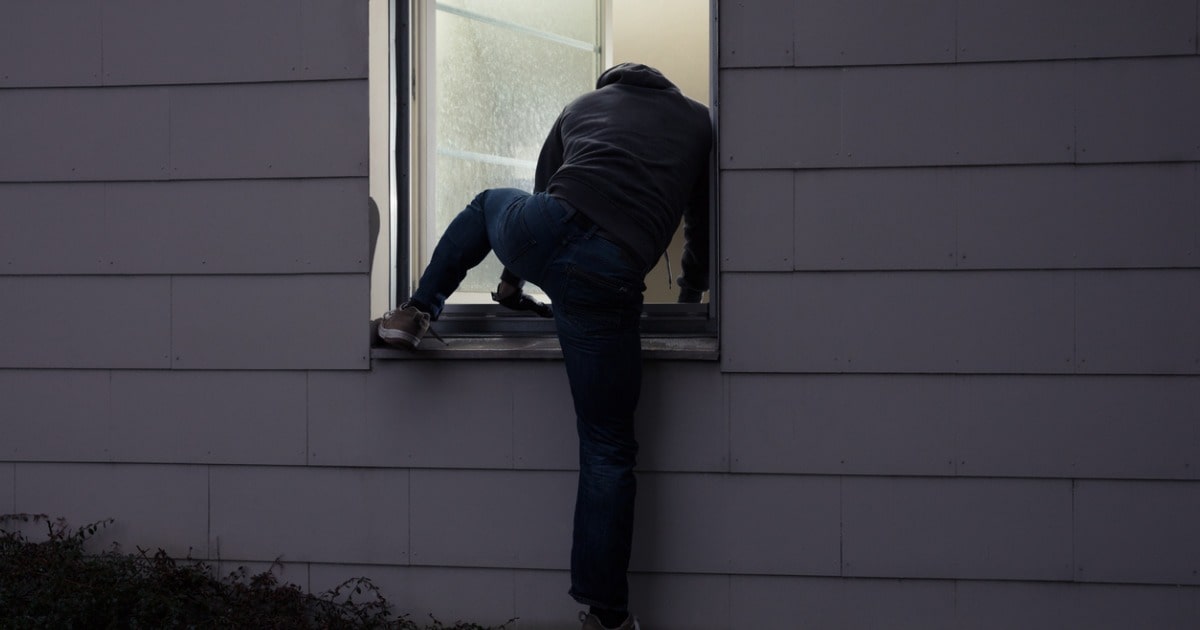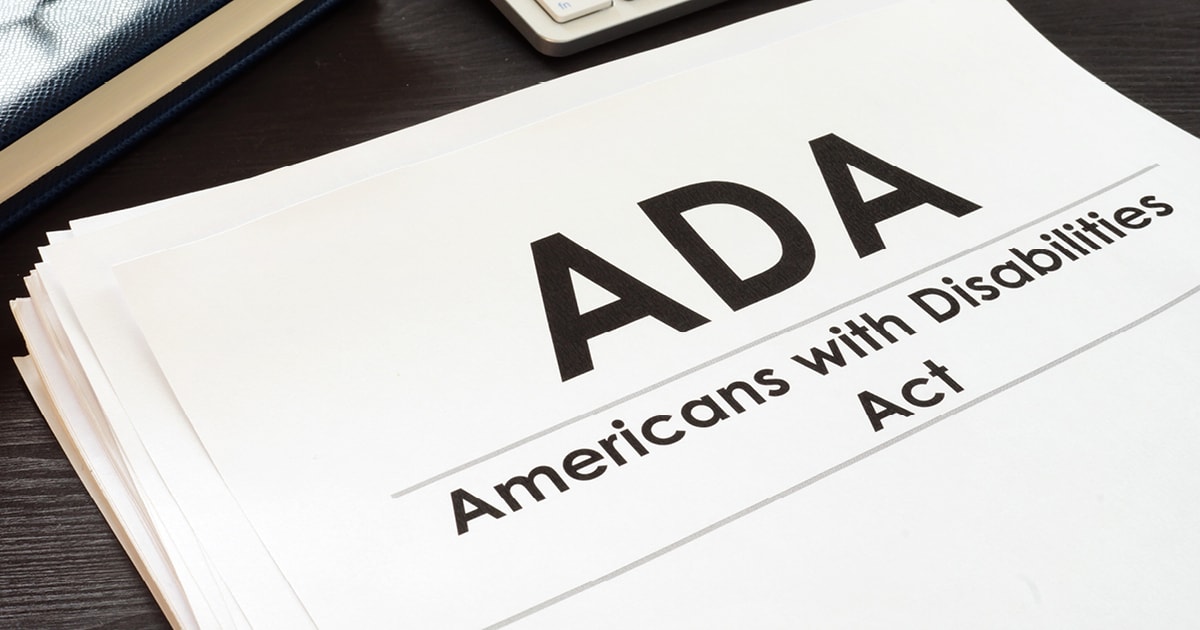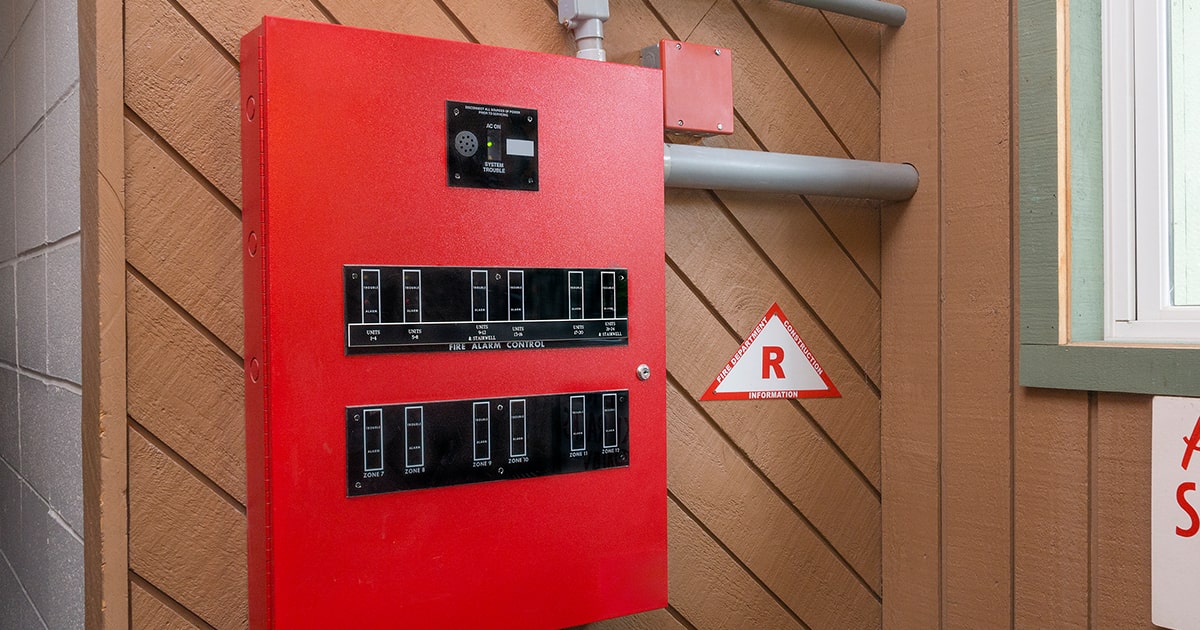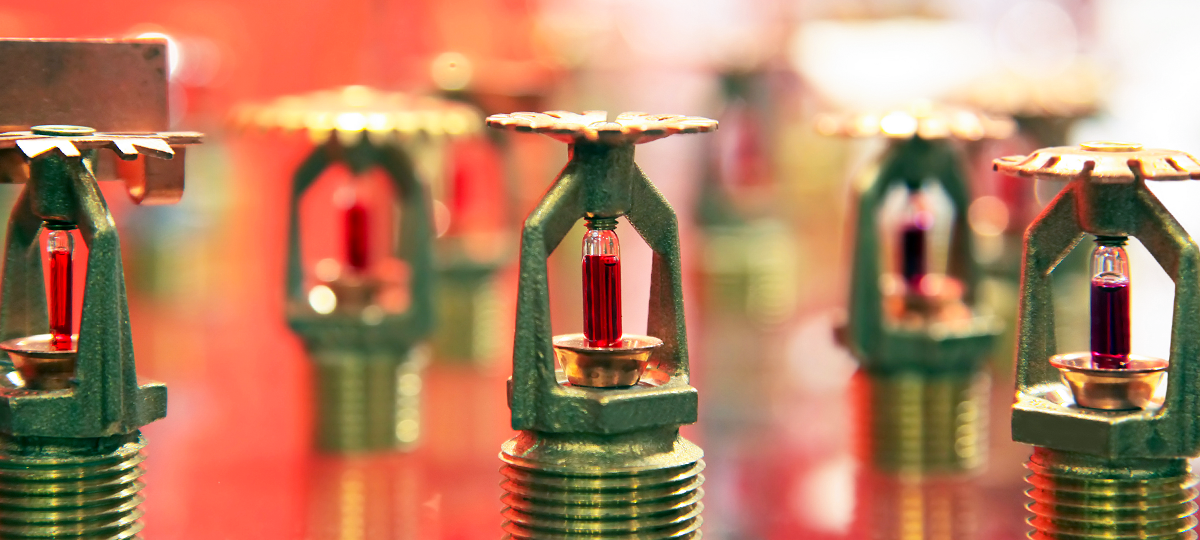What are the Different Types of Smoke Detectors?
Smoke detectors are vital to fire safety for homes and businesses. Because they protect lives from fires or gas leaks, it’s essential to choose the best detector for your environment. There are various options to choose from, meaning you need to understand the benefits each one offers before making a selection. Learn more about the different types of smoke detectors, how each works, and which ones are best in varying residential and commercial situations.
How do smoke detectors work?
Smoke detectors have evolved significantly over the years, with two different sensor technologies becoming the standard. While it’s most important to have the proper number of detectors placed correctly in a building, you should evaluate which types are best for different environments. Photoelectric and ionization smoke alarms are the most common types available. According to the National Fire Protection Association (NFPA), having a mix of both kinds of sensors present in a structure is strongly recommended.
A detector that uses a photoelectric sensor is best for alerting people to smoldering fires. These detectors use a light source and a photosensitive cell and are set off when smoke enters the device and scatters the light into the sensor.
Detectors that use ionization are typically more responsive to flaming fires. A small amount of radioactive material between two plates ionizes the air and creates a current, and the sensor triggers the alarm if smoke enters the space and reduces the flow.
As the name suggests, a combination detector uses both photoelectric and ionization sensors in a single device. By using both types in the same device, combination detectors leverage the benefits of each sensor for a more comprehensive fire safety approach. Additionally, some combination smoke alarms can also detect carbon monoxide (CO).
Multicriteria detectors, sometimes called intelligent detectors, combine photoelectric and ionization sensors with additional measures to offer more comprehensive, accurate capabilities. Intelligent detectors often use heat sensors and a unique algorithm that helps reduce alarm triggers from nuisances like smoke, not fire, from cooking.
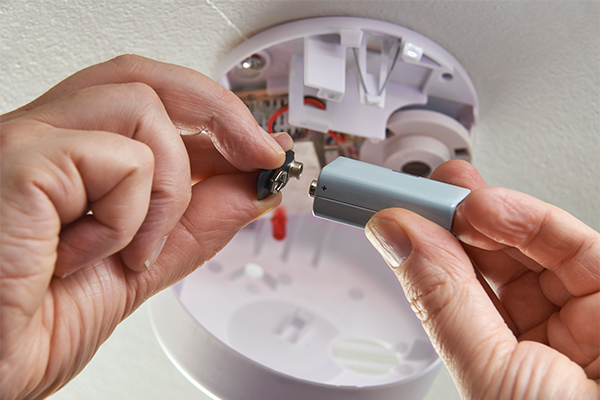
How are smoke detectors powered?
Smoke detectors can be powered in various ways, but they all share one factor regardless of what powers them: their lifespans. Smoke alarms must be replaced every 10 years, while combination CO detectors range from 7 to 10 years; most devices will beep to signal battery or detector issues. While devices have a set lifespan, their power sources may need more frequent replacement or none at all.
A battery-powered smoke detector depends on two different kinds of batteries. The replaceable battery option can be powered by 9v, AAA, AA, and other types of batteries. These batteries must be replaced at least annually, and the alarms should be tested anywhere from once a month to once a year, depending on local standards. The other option is a 10-year battery that’s sealed within the detector, so it doesn’t need to be replaced but does need to be tested every month.
Combination smoke detectors depend on batteries and your home or business’s preexisting electrical system to function. If your structure has hardwired connections available for smoke alarms, ensure you use them. The battery in a combination detector ensures the device can still work even if your building loses power. These batteries must either be replaced every year or whenever the device is replaced.
Smoke detectors can be single-station devices that are triggered individually. While this is acceptable per fire safety standards, it’s better to have an interconnected system so each detector can alert all of a building’s inhabitants, even if they’re far from the fire. Connected smoke detectors can communicate with each other through wired or wireless connections, ensuring people in larger or multistory buildings have enough time to evacuate. In any case, it’s essential to know that an interconnected system may not call the fire department.
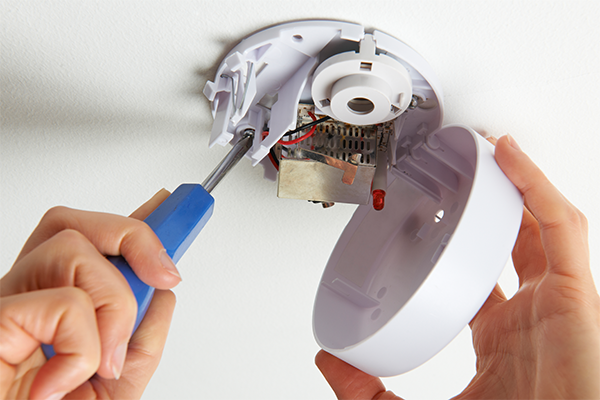
What kind of smoke detector should I buy?
While there are no wrong or right choices when it comes to smoke detectors, our team of experts at FSS Technologies has helpful recommendations for homes and businesses. In general, it’s best to purchase a smoke alarm produced by companies that undergo device testing through reputable organizations like Underwriters Laboratories (UL) or Intertek. Additionally, we recommend using combination or multicriteria detectors that are hardwired with backup battery options.
One of the brands we proudly recommend for our clients is Kidde, the most-installed fire safety brand in North America. With over 100 years of experience in developing fire safety solutions, Kidde offers smoke detectors that provide innovative residential and commercial solutions. The company’s smart alarms enable you to protect your home from smoke, CO, and other hazards while reviewing the status of your devices from your mobile phone.
Our recommendations for commercial fire systems are similar to those for residential settings. Combination wired detectors with battery back-ups are best, and having them interconnected with each other and your commercial fire safety system is incredibly vital. Whether you run a rental property or retail business, another critical part of your smoke detectors is following ADA requirements and ensuring they trigger visual fire alarms. Additionally, regularly examine your company’s fire safety posture to avoid common code violations.
Let FSS handle fire safety for you
Fire safety is something you must prioritize, whether it’s in your home or at your workplace. Smoke detectors are one of the most basic yet essential elements in your fire safety approach. With our service technicians on your side, your home or business can rest easy knowing the experts at FSS Technologies created a custom solution to protect what matters most to you. From preparing for inspections to equipping you with life-saving fire alarm monitoring services, our team is here to support you from installation to maintenance. Contact us today to learn how we can help you with smoke detectors, fire alarms, and much more.
